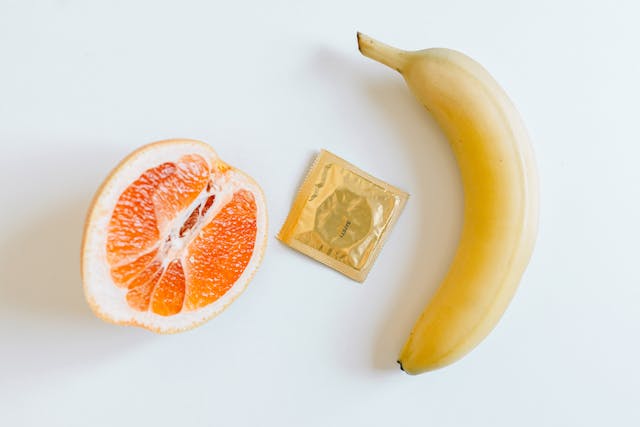
If you’re new to the world of sex, you might feel a mix of excitement and nervousness—and that’s completely normal! But before you jump in, you need to understand how important it is to protect yourself and your partner.
“Safe sex” might sound like just another buzzword for health freaks and germaphobes, but it’s so much more. It’s about making informed decisions that ensure your sexual experiences are positive, healthy, and enjoyable. Are you thinking about getting freaky between the sheets for the first time? Let’s get into everything you need to know about safe sex, why it’s important, and how to get started.
Why Is Safe Sex Important?
You’ve probably heard it a hundred times, but here’s the deal: safe sex is not just about avoiding unwanted pregnancies. It’s also about protecting yourself and your partner from sexually transmitted infections (STIs), and ensuring that both of you feel respected and comfortable. Knowing how to practice safe sex is empowering—it gives you control over your sexual health and peace of mind to fully enjoy your experiences.
How to Practise Safe Sex to Avoid Pregnancy
If you’re not ready for parenthood, it’s essential to use contraception correctly every time you have sex. Here are some key tips to help you avoid pregnancy:
- Use Condoms: This one’s a no-brainer. Condoms are one of the easiest and most effective ways to prevent pregnancy and protect against STIs. Make sure you know how to put one on correctly. A poorly applied condom is just as ineffective as not using one at all!
- Know Your Birth Control Options: There are several types of contraceptives out there—pills, patches, rings, injections, and more. Find out which one fits your lifestyle and needs best. You might want to talk to a healthcare provider to explore the right option for you.
- Don’t Rely on “Pulling Out”: The withdrawal method, or “pulling out,” as popular as it is, isn’t a reliable form of contraception. There’s still a risk of pregnancy because pre-ejaculate fluid (pre-cum) can contain sperm.
- Have Emergency Contraception Handy: Even with the best precautions, accidents happen. Having a Plan B or emergency contraceptive pill on hand can be a good backup. It’s most effective when taken as soon as possible after unprotected sex. When it comes to plan B, procrastination is not your friend at all.
Types of Contraceptives You Should Know About
There are several methods to prevent pregnancy, and it’s essential to understand what each offers:
- Condoms: Male and female condoms are a barrier method that prevents sperm from entering the uterus. They’re the only contraceptive that also protects against STIs.

- Birth Control Pills: A daily pill containing hormones that prevent ovulation. It’s over 99% effective with perfect use but needs to be taken consistently at the same time each day.
- IUDs (Intrauterine Devices): A small T-shaped device inserted into the uterus that prevents sperm from reaching the egg. It can be hormonal or non-hormonal (copper-based) and lasts anywhere from 3 to 10 years.
- Implants and Patches: The implant is a small rod inserted under the skin of your arm, releasing hormones to prevent pregnancy. The patch is worn on the skin and changed weekly.
- Injections: A hormone injection given every three months to prevent ovulation. It’s very effective, but you need to keep up with the schedule.
- Emergency Contraception: Pills or an IUD can be used after unprotected sex to prevent pregnancy. It’s not a regular form of birth control and should only be used in emergencies.
Common Myths About Safe Sex Debunked
Before we move on, let’s debunk some popular myths about safe sex:
- “I can’t get pregnant the first time I have sex.”
False. If ovulation is happening, pregnancy can occur, whether it’s your first time or your hundredth. - “Two condoms are better than one.”
No. Doubling up can cause friction, making them more likely to break. Stick to using one condom at a time. - “I’m safe if I only have oral sex.”
Absolutely not! Oral sex may be lower risk for pregnancy but still carries the risk of STIs like herpes simplex virus 1 (HSV-1) and human papillomavirus (HPV). Dental dams or condoms can help make oral sex safer.
Talking About Safe Sex With Your Partner
Bringing up the topic of safe sex with a new partner can feel awkward, but it doesn’t have to be. Here’s how to make it a smooth conversation:
- Be Direct, but Compassionate: Let your partner know your concerns and why safe sex is important to you.
- Share Knowledge: Talk about the different types of contraceptives and protection available, and decide together which options are best for both of you.
- Be Open to Their Feelings: Listen to what your partner has to say and respect their boundaries and concerns. Remember, it’s about mutual respect and safety.
- Make It Part of the Fun: Using protection doesn’t have to be a mood killer! Turn it into a routine that adds to the excitement rather than detracting from it.
If your partner isn’t interested in having a conversation that keeps everyone safe and on the safe page sexually, you might want to reconsider building a sexual life with them.
Signs It’s Time to See a Doctor
If you notice anything unusual—like pain, discomfort, unusual discharge, or if you think you’ve been exposed to an STI—don’t hesitate to see a healthcare professional. Don’t be shy. Healthcare practitioners treat lots of patients with different conditions everyday. They’ve very nearly seen it all!
Regular check-ups are also a great way to stay informed about your sexual health and catch any issues early.
Own Your Sexual Health
Safe sex isn’t just about protection and defence; it’s also about taking control of your health, your body, and your life. Understanding and practicing safe sex allows you to enjoy your experiences without fear, confusion, or regret. Remember, every step you take towards protecting yourself is a step towards a healthier, happier life.
Whether you’re new to sex or simply looking for a refresher, always prioritize your safety and well-being. Be proud of your choices, and never hesitate to ask questions or seek help when you need it.
Share This Guide With Someone Who Needs It!
Today is World Sexual Health Day. Help spread awareness and promote safe, healthy, and enjoyable experiences by sharing this article.
NucleusIS Africa promotes healthcare access in Africa by providing accessible, collateral-free financing for healthcare businesses. If you own a pharmacy, hospital/clinic or medical laboratory, you can get up to 20 Million Naira in 48 hours to stock up, purchase equipment or fulfill your daily cash flow needs. Apply here




Leave a Reply